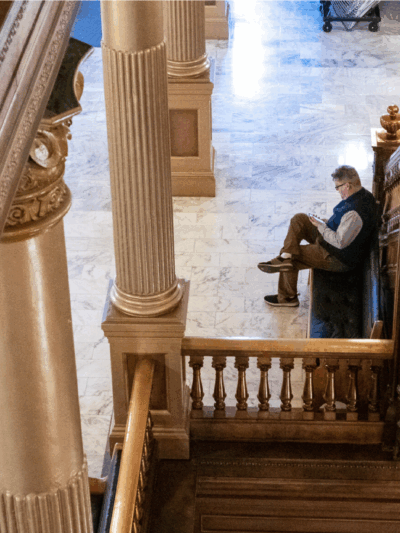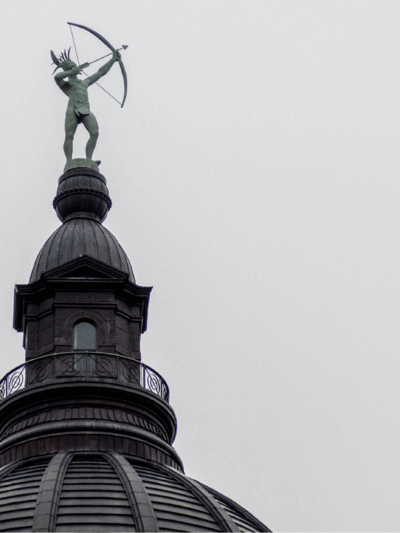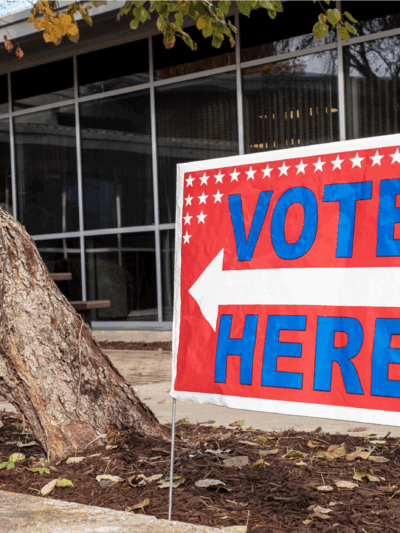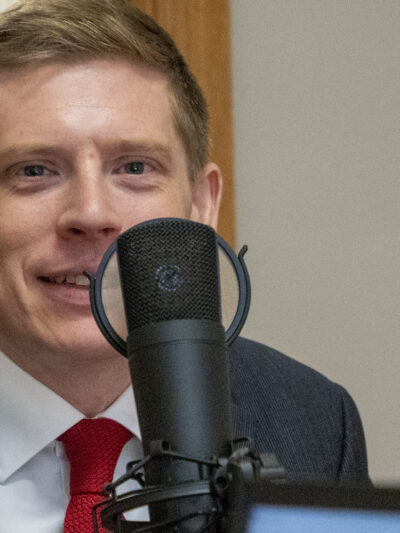News & Commentary
Mar 13, 2023
Statehouse scraps: Big support for voting rights, transgender ban numbers, homelessness bill paused - Kansas Reflector
The American Civil Liberties Union of Kansas released a poll on voting rights Friday. The civil rights advocacy group found that 70% of Kansans support measures to make voting easier, rather than adding additional restrictions.

Feb 03, 2023
Statehouse scraps: Kansas lawmakers shred transparency, good and bad bills, hated photo - Kansas Reflector
The ACLU of Kansas brought attention to a bill that proposes “proposes an old-fashioned literacy test, with a curriculum that includes the very Constitution bills like this one contradict, before individuals can exit probation, fully reenter community, or vote.”

Feb 03, 2023
'We would all be breaking the law': Kansas runoff election bill draws criticism - Kansas Reflector
Kansas ACLU policy director Aileen Berquist said runoff elections discouraged voter engagement and were based on discriminatory practices that began in the Jim Crow era to disenfranchise Black voters.

Jan 16, 2023
ACLU of Kansas prepared to challenge Legislature’s attacks on trans kids, voting rights
Organization wants to eliminate fees for children and legalize medical marijuana

Oct 25, 2018
Judge says public can’t watch Kobach’s deposition video
Federal Judge Julie Robinson said in an order on Thursday that the tape is not part of the judicial record. The order prevents the American Civil Liberties Union from releasing the tape.

Jul 30, 2018
Kansas ACLU Introduces 'Election Protection' Hotline To Assist Voters
Kansas ACLU’s Legal Director Lauren Bond described potential issues the hotline could be used for.

Jul 19, 2018
ACLU in the News - Voting Rights
News articles that feature the ACLU of Kansas' voting rights effort in the state.

Aug 31, 2015
ACLUKS Testifies against K.A.R. 7-23-15
Doug Bonney, Legal Director of ACLUKS testifies on Wednesday, September 2nd at the State Capitol against K.A.R. 7-23-15, which would impose a 90 day period during which voter registration applicants would be required to complete all of the voter registration requirements under Kansas law. K.A.R. 7-23-15(b).Read his testimony and news coverage on the hearing below.
By Mary B.

Aug 31, 2015
Kobach says voter registrations without ‘proof of citizenship’ need to go
In the Kansas City Star on August 30th, Kris Kobach proposes throwing out over 30,000 incomplete voter registration applicants due to failure to provide the "proof of citizenship" documents now-required by the Secretary of State's office. The ACLU of Kansas weighed in below."Doug Bonney, legal director of the American Civil Liberties Union of Kansas, said election officials have long kept incomplete applications “in suspense,” prior to the new proof-of-citizenship requirements, and there was never a need to clear the records.So why should there be a time limit now that it’s more difficult to register? he asked.“I don’t see any reason to limit it,” Bonney said, “except that with 30,000 now on the list, it’s gotten to be an embarrassment for Kobach.”
By Mary B.

Stay Informed
Sign up to be the first to hear about how to take action.
By completing this form, I agree to receive occasional emails per the terms of the ACLU’s privacy statement.
By completing this form, I agree to receive occasional emails per the terms of the ACLU’s privacy statement.
